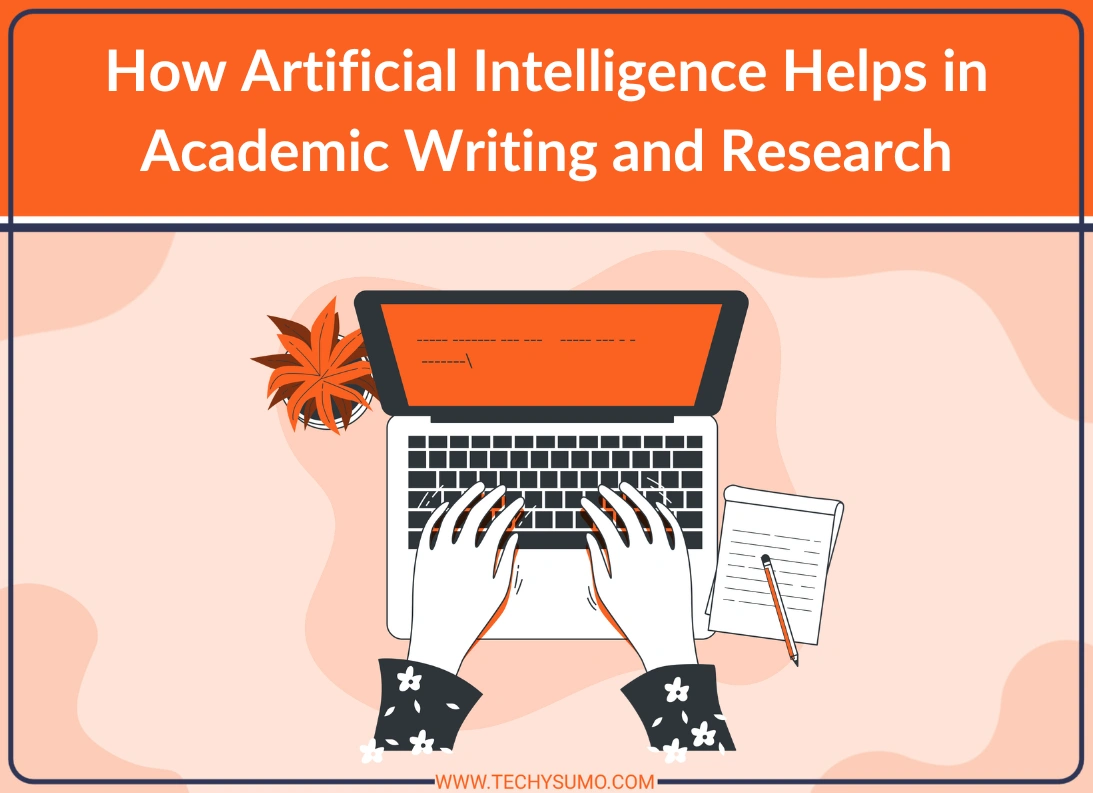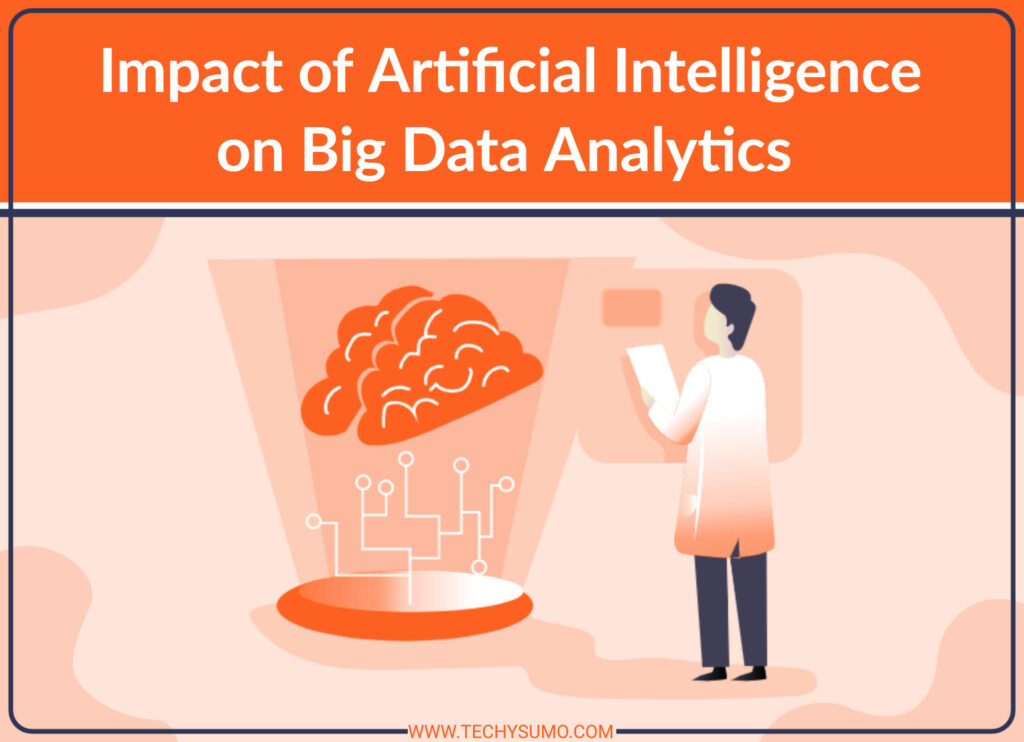Artificial intelligence is transforming academic writing and research by automating time-consuming tasks, enhancing writing quality, and accelerating the discovery process. From grammar checking and citation management to data analysis and literature reviews, AI apps are empowering students, researchers, and academics to produce higher-quality work more efficiently while maintaining academic integrity.
Table of Contents
- AI Streamlines Writing Process Through Advanced Automation
- AI Revolutionizes Research Data Analysis and Processing
- AI Accelerates Literature Review and Research Discovery
- AI Enhances Academic Integrity Through Plagiarism Detection
- AI Enables Personalized Learning and Academic Support
- AI Transforms Research Methodology and Experimental Design
- Final Thought
AI Streamlines Writing Process Through Advanced Automation
AI has drastically influenced academic writing by automating citations, formatting documents, and suggesting sources. Modern AI writing tools leverage real-time grammar corrections, style improvements, and vocabulary enhancements, with platforms like Paperpal providing 3.88 edits per sentence, mirroring human editors’ corrections.
Enhanced Grammar and Language Correction Tools
Grammar checkers have been put to offer contextual corrections that recognize academic language patterns. These softwares can distinguish between domain-specific terminology, scientific jargon, and maintain consistency in technical writing. Unlike any general free grammar checker, academic-focused AI tools jell up to the specific conventions of scholarly writing, helping researchers convey critical thoughts clearly and professionally.
Automated Citation and Reference Management
AI citation tools have reshaped how researchers manage references and bibliographies. Software like Sourcely, MyBib, and SciSpace support thousands of citation styles and can automatically generate metadata from sources. Advanced functionality may involve bulk citation creation, real-time error checking, and verification of source accuracy. These tools confirm compliance with various academic standards while reducing the risk of citation errors.
Writing Quality and Style Enhancement
AI writing assistants aid in improving the overall quality and relation with the academic texts. They can suspect unclear passages, render better sentence framing, and suggest vocabulary enhancements. For non-native English speakers, AI tools like ai paraphraser, grammar checker are specifically valuable, as research shows these writers may take up to 51% more time to write in English. AI helps bridge this gap by providing translation support and academic English guidance.
Also Read
AI Revolutionizes Research Data Analysis and Processing

AI has revolutionized data analysis by automating complex processes, enhancing efficiency, accuracy, and scalability. Machine learning algorithms can analyze large datasets, identify patterns, and process both structured and unstructured data, making it crucial for academic research.
Automated Data Cleaning and Transformation
AI systems can quickly distinguish errors and outliers in datasets, cleaning and transforming data more precisely and accurately than human analysts. These algorithms can manage numerous data types and perform crucial transformations that would otherwise require intensive manual coding. This capability saves significant time in data preparation, which can consume up to 40% of total project time.
Predictive Analytics and Model Generation
AI enables researchers to generate predictive models with impressive precision through automated feature engineering and model selection. AutoML systems can automatically select the most suitable models, tune parameters, and execute analyses with minimal human intervention. This automation removes much of the guesswork and reduces the time needed for model development.
Exploratory Data Analysis Automation
AI can automate much of the exploratory data analysis process, allowing researchers to understand their data faster and more effectively. By identifying patterns, correlations, and important features in datasets, AI assists analysts in drawing meaningful conclusions and informing decision-making processes.
AI Accelerates Literature Review and Research Discovery
AI has significantly improved research methods by enabling researchers to efficiently search vast databases of academic journals and articles, save time by visualizing citation networks, identifying key literature, and tracking research gaps, while also providing greater precision than traditional search methods.
Intelligent Literature Discovery Systems
AI research tools use machine learning and natural language processing to understand research contexts and suggest relevant papers. These systems can analyze research questions and provide targeted recommendations based on the specific needs of each project. Some platforms can even suggest alternative research directions based on citation patterns and emerging trends in the field.
Automated Content Summarization and Analysis
AI tools can generate summaries of research papers, extracting key concepts from complex publications and helping researchers quickly understand the main points. These systems can analyze multiple papers simultaneously and identify common themes, methodologies, and findings across the literature. This capability significantly accelerates the literature review process and helps researchers synthesize information more effectively.
Research Collaboration and Organization
Paraphrasers are the collaboration tools that streamline group research projects by providing shared workspaces, facilitating real-time feedback, and tracking contributions from team members. These platforms help coordinate large research initiatives and ensure all collaborators have access to relevant resources and updates.
AI Enhances Academic Integrity Through Plagiarism Detection
AI-based plagiarism detection systems aid in maintaining academic integrity by identifying unintentional plagiarism. They detect text similarities across databases, filtering direct quotations and methodologies. Advanced systems like iThenticate provide scores, but manual verification is crucial for accurate assessment.
Multi-Modal Plagiarism Detection
Modern AI systems can detect various forms of plagiarism beyond simple text matching. They can identify paraphrasing, patchwork plagiarism, and even image duplication. Google Images and emerging advanced software can detect identical or modified graphics, tables, and figures. This comprehensive approach helps maintain integrity across all forms of academic content.
Ethical Guidance and Prevention
AI tools not only detect plagiarism but also help prevent it by providing guidance on proper citation practices and academic writing standards. These systems can flag potential issues during the writing process, allowing authors to address concerns before submission. Some platforms provide educational resources to help researchers understand acceptable writing practices and avoid unintentional misconduct.
Real-Time Writing Support
Advanced AI writing assistants can monitor text as it’s being written and provide real-time alerts about potential similarity issues. This proactive approach helps writers maintain originality while working and reduces the risk of accidental plagiarism through immediate feedback and suggestions for improvement.
AI Enables Personalized Learning and Academic Support
AI-driven academic support systems are revolutionizing student education by providing personalized learning experiences using machine learning, natural language processing, and automation. These systems simulate human tutoring, adjusting learning pace and difficulty levels, and resulting in a 62% increase in test scores.
Adaptive Learning Platforms
AI-powered educational platforms can track student progress, understand strengths and weaknesses, and provide personalized recommendations. These systems continuously analyze performance data and make real-time adjustments to optimize learning outcomes. The technology can identify potential academic struggles early and provide customized support to help students overcome challenges.
Intelligent Academic Advising
AI systems can offer personalized experience in academic guidance by identifying student performance data, course histories, and career goals. These platforms can suggest appropriate courses, research opportunities, and academic pathways based on individual student profiles. AI chatbots can offer 24/7 support, answering questions about academic requirements and procedures with high accuracy rates.
Multilingual Support and Accessibility
AI translation tools aid researchers to access a broader range of scholarly work by breaking down language barriers. These systems make sure non-native speakers indulge more with international research and give their hands to global academic discussions. AI also supports accessibility by leveraging text-to-speech features and other assistive technologies for students with disabilities.
Accessibility in academic settings also extends beyond written language to real-time communication. In live lectures, virtual classrooms, or research discussions, ASL video interpretation helps ensure deaf and hard-of-hearing participants can fully engage with academic content.
AI Transforms Research Methodology and Experimental Design
AI is revolutionizing research design and conduct by analyzing existing patterns, suggesting optimal designs, and identifying potential variables. It aids in sample size calculations, power analysis, and statistical planning, ensuring valid and reliable analyses. AI also helps identify confounding variables and suggests control measures.
Hypothesis Generation and Testing
AI systems can analyze vast amounts of existing research to identify gaps in knowledge and suggest new research directions. By processing literature from multiple disciplines, AI can propose novel hypotheses that might not be apparent to researchers working within specific fields. These tools can also predict the likelihood of hypothesis confirmation based on existing evidence patterns.
Experimental Optimization
Machine learning algorithms can optimize experimental parameters in real-time, adjusting conditions to maximize data quality and research outcomes. This capability is particularly valuable in fields requiring complex experimental setups or when working with limited resources. AI can suggest modifications to protocols based on preliminary results, helping researchers achieve better outcomes with fewer iterations.
Cross-Disciplinary Research Support
AI tools facilitate interdisciplinary research by identifying connections between different fields of study. These systems can suggest relevant research from other disciplines that might inform current projects, leading to more comprehensive and innovative approaches to complex problems. This cross-pollination of ideas often leads to breakthrough discoveries and novel research methodologies.
Final Thought
The integration of artificial intelligence in academic writing and research is a paradigm shift that enhances human intellectual capabilities by automating tasks, improving accuracy, and providing intelligent assistance. As technologies evolve, they promise to make academic work more efficient, accessible, and impactful while maintaining integrity and quality. The future of academic research lies in integrating AI tools to accelerate discovery across all fields.






